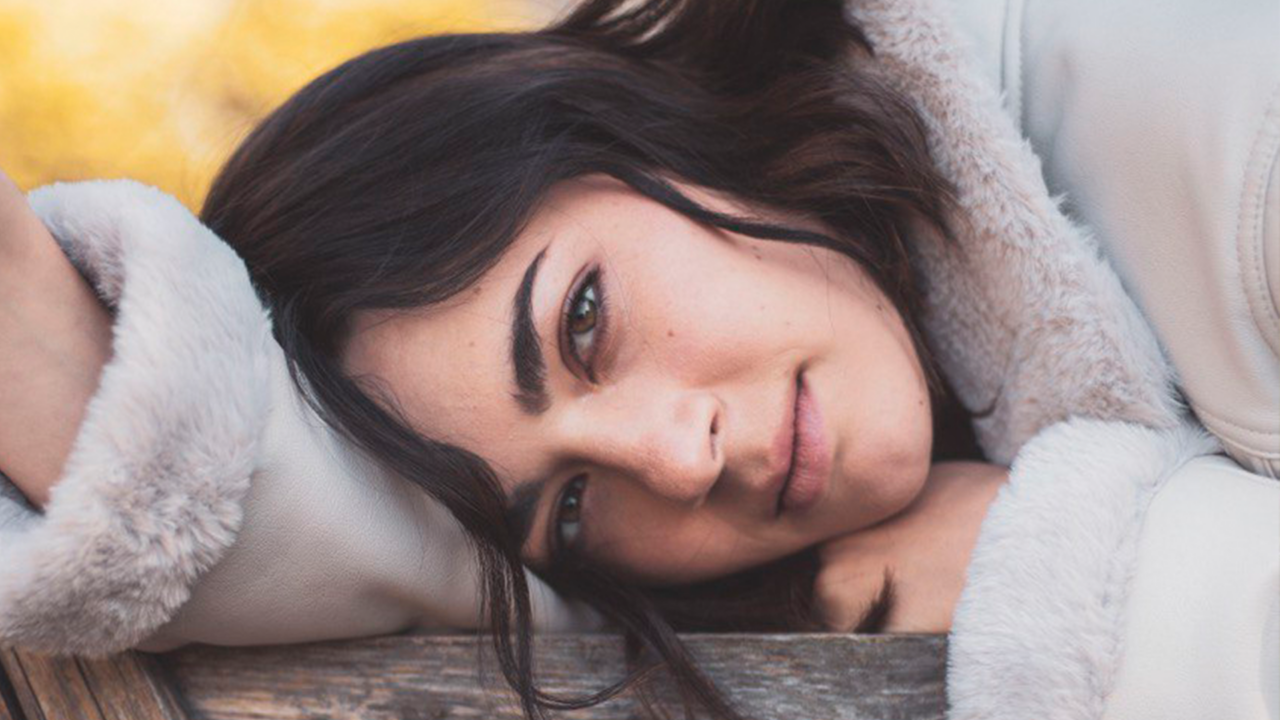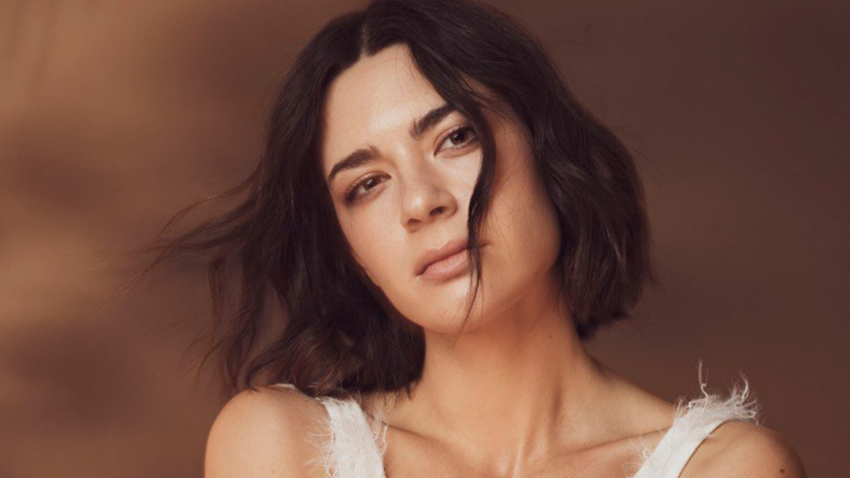Mia Dimšić is a Croatian singer and songwriter born in Osijek and a known personality for Eurovision fans, since two years ago she went on to win Dora, Croatia’s national selection, becoming the Croatian representative in the edition that took place in Turin. Unfortunately, Mia reached the 11th place and didn’t make it to the Grand Final, but she gave us such a cute performance and a very sweet song that will definitely be remembered in Eurovision.
After her albums Život nije siv (2017), Bozicno jutro (2017) y Sretan put (2019), Mia published only two days ago Monologue, her first English album full of delicate rhythms and lyrics that many people can relate to.
Mia gave us an interview in which she talks a little bit about her latest work.
Why “Monologue”? What’s the concept behind this album? What can you tell us about the “official visualizers” we can watch in your YouTube account with the lyrics of all the songs?
R: Monologue is the name of both the opening and closing tracks of the album (quite coincidentally, since we could not decide between its two very different versions), but also the word that I feel describes my debut English album the best. I think every songwriting process, especially if you’re alone, is an internal monologue of yours. Lyrics and music allow sincerity, even if it’s harsh or uncomfortable, or especially so. I feel songs enable me to express things I couldn’t say out loud otherwise, and that is so powerful. I was very vulnerable on this album, and I find that that is its biggest advantage. We tried to convey that vulnerability in the visualizers which we did for every track, where we have a very simple background and I am completely exposed, alone with my thoughts and feelings. A talented director Iva Čaisa from my record label Croatia Records did all of them, and we filmed them in just one day. They are available on my YouTube channel.
Which were your musical inspirations for “Monologue”?
R: Monologue features 6 different producers so the songs on it are sonically diverse, but I would say they’re all pop subgenres and they are all marked by elaborate storytelling. In that sense, Taylor Swift is always my biggest inspiration in how vividly I want to convey a specific storyline or moment. I am also very influenced by Ed Sheeran, and one or two songs I would say are very much influenced by Lana del Rey. It is really hard to say because I listen to a lot of different stuff, and it all subconsciously directs my musical aspirations, but these three I would single out.
I’ve just listened to your album and I must say that I enjoyed it very much. You talk about some forbidden love that goes wrong, like in “Monologue” or “Guilty pleasure”. However, there are some other songs, such as “Airplane Hearts” or “As I watched you sleep”, that talk about how beautiful and pure love can be. Is it hard for you to write about love from such different views? Is there any perspective you would like to adopt regarding love in the future as a songwriter?
R: I am really glad you like the album, and I would agree that it holds very different approaches to love, at least seemingly, but I feel love is all of that, sometimes even at the same time or in different phases of a relationship. I’ve definitely experienced all of it, and sometimes when everything was perfect I would crave drama, then other times when I would get drama and heartache, I would be broken and wish for the opposite. I think you need all of the emotions for the full picture to make sense and all emotions are equally sacred. I am sure that my songwriting will keep changing and evolving as I experience even more of love’s aspects in various segments of life. After all, that is why our existence here on Earth is so precious and fun. The learning and discovering never stops.
“Darcy and Elizabeth” have lots of references towards books and TV series suchs as “Dawson’s Creek”, “Pride & Prejudice”, “Harry Potter” and “The Bridges of Madison County”. Does art inspire you? If there was any famous fictional love story you’d have to write about, which one would it be and why?
R: Art has influenced me so much since I was so little I could barely understand it. I am a big fan of fictional love triangles (I read Twilight in one day during a summer break when I was fourteen), and my favorite ever is definitely Dawson, Joey and Pacey so it rightfully owns a verse in „Darcy and Elizabeth“. Looking back, I believe that books and TV shows were what really messed up my love expectations in my teenage years, and that was what sparked the idea for the song. For a long time, I simply refused to see that true love is never hectic or messy, but comfortable and non-voluntary like breathing. If I had to pick one couple to write about, right now it would have to be Jamie and Claire from „The Outlander“. I am obsessed with the show and can’t wait for new episodes to air.
In “Slow Dancing” you feature the pianist Matija Dedić. Do you think that the way in which he plays the piano makes a huge difference in the way the song would be if he didn’t play it? And how many instruments do you play?
R: Matija Dedić is one of our most acclaimed pianists, so I am first and foremost beyond honoured that he wanted to sprinkle his pixie dust on one of my favorite songs I ever wrote. He gave it a new spin and energy, and since he was one of the first to record his part, he definitely shaped the rest of the arrangement and influenced the way I sang the final vocals. Apart from guitar, I play ukulele and tambura, which is a Croatian national instrument. I have been trying to teach myself piano, but so far I can only write songs on it and not really perform live, but I will try to work on that in the future.

The album has ballads and country songs, but every song differs from the next one and, for instance, in “Question in the Air” the guitar in the intro reminds us of the typical guitar-solo that is very traditional and typical in some parts of Spain. What music genre do you listen to and which one do you think better suits you as an artist? Would you feel comfortable navigating in some other styles?
R: I would say I listen to a lot of different genres, but I always come back to pop and country the most. I also really like Spanish and Latin music since I grew up watching your soap operas. I can understand some Spanish, but I would love to learn to speak fluently as well. That could explain why I was thrilled when the producer of „Question in the air“ Bojan Šalamon Shalla suggested we put the classical latin-sounding guitar in the intro and the verses. It gave a different vibe to the whole song. This album is me playing with different new sounds and styles while still staying true to what I love most, but in the future, who knows, I might try go deeper into one of those styles, why not. I am open to whatever life brings.
“Monologue” is an entirely English album, but you’ve written your songs in Croatian in the past, such as in your albums “Život nije siv” (2017) or “Sretan put” (2019). What has changed? Do you see yourself in the future writing in English, in Croatian or in a combination of them both?
R: I am actually headed to the studio as we speak since I am also preparing my next album in Croatian which will be out around next spring. That means I will definitely pursue both directions as much as I can. I am sure Monologue is the first of many albums in English because I simply can’t stop writing in English and it makes me so happy, but I also love singing in my mother tongue and can’t neglect the audience that wants to hear that.
Of course, as an Eurovision-related media, we have to ask you. Have you seen any sort of difference in your musical career before and after Eurovision? Tell us about it.
R: Yes, definitely. Eurovision was an intense experience that challenged me and made me work on not just my artistry, but my personal skills as well. I feel like I grew so much as a person, made so many new friends, met the amazing fans, got the opportunity to go as far as New York and sing for their Eurovision fan community, etc. I am blessed to have got the opportunity to represent Croatia so early on in my career. Also, Eurovision was a big motivation for me to finish this album, since Guilty pleasure opened the door to many new listeners outside of my language-speaking territory.
Eurovision fans from Spain were able to see you at the pre-party that took place in Madrid in 2022. Did you like Spain? And the Spanish fans? Do you have any plans to come back to Spain, for a concert or anything, in the future?
R: The pre-party was my first visit to Madrid and I can’t wait to come again, it was so beautiful! Also, I was blown away by how passionate Spanish fans are about Eurovision. They showered us with love and attention. I feel like Spanish and Croatian mindsets are similar and we tend to get along. People from both countries are passionate, but at the same time laid-back and know how to enjoy life. I would really like to come to Spain and present the new album there as well.
Thank you so much for answering these questions for ESCPLUS. We wish you the best with your new project and we have one last question: Would you ever consider returning to Eurovision in the future?
R: Right now it is not my plan, but never say never.

